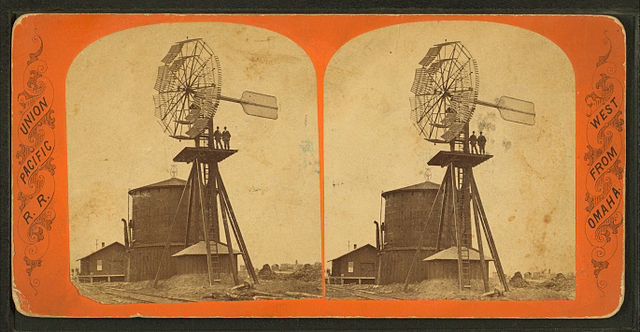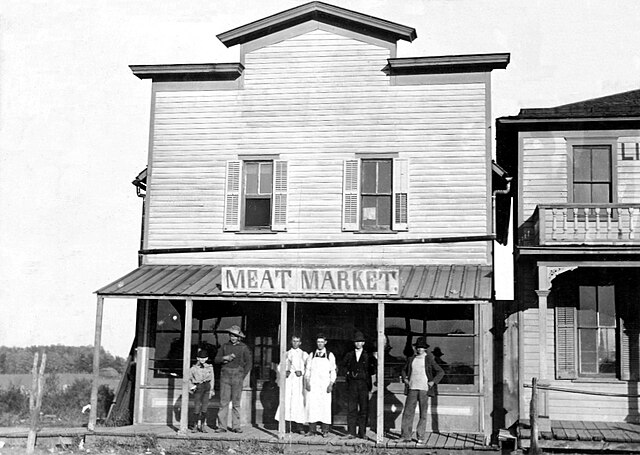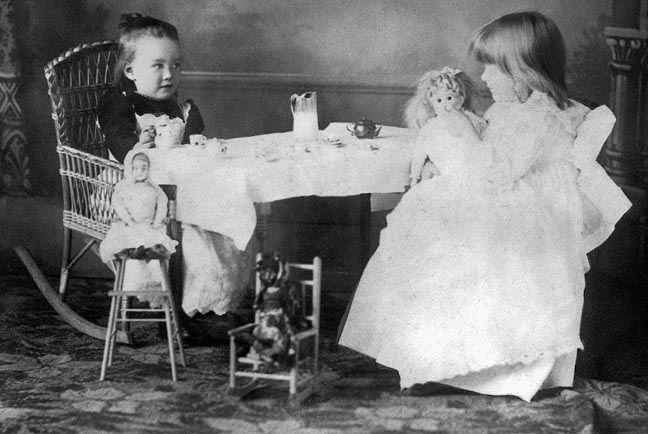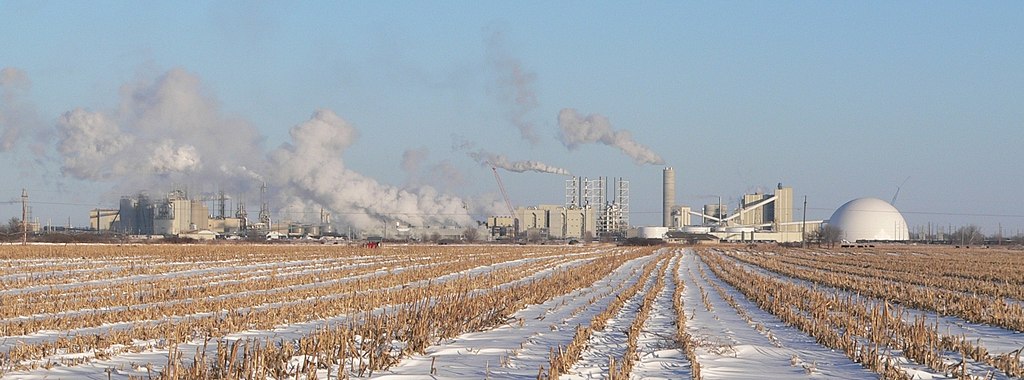 |
| Windmill, Columbus, Nebraska, c1870 |
Columbia Junction is a big comedown for Frank, a young lawyer, who is accustomed to the high life in New York. He’s bored out of his mind in Columbia Junction, and author Elizabeth Higgins does little to prove him wrong about the place. The shabby town lacks a single saving grace, and the surrounding farmland is described as flat and dreary. The town’s respectable folks are mostly shallow and small-minded, while “Polack Town,” on the wrong side of the creek, is a disreputable rural slum.
 |
| Platte County, Nebraska; Columbus, county seat. |
Plot. In Frank’s first year there, the farmers have bumper crops, but they go unharvested and unshipped to market because railway freight rates have been jacked up too high. The next year there is a bad drought, and the farmers have no crop at all. Two years without an income drive many of them into poverty. People go hungry, and children starve. In a gut-grabber of a scene, a man is forced to shoot a favorite horse because he can no longer afford to feed it.
The novel takes on a political tone as a populist orator emerges from the mountains of Colorado, where striking workers have been fired upon and bayoneted by soldiers. The orator is a young woman, Edith Hull, known by one and all as a Joan of Arc. Grieved by the loss of both father and brother, she has rallied opposition to the railroads and Eastern capital, and a People’s Party begins to organize among her followers.
Frank is enchanted by her and falls in love. Eventually, they marry, and she moves into a sparsely furnished house with Frank, so small that the cooking stove is in the parlor. Running for state senator as a Populist, Frank is elected with a mandate to make a law regulating freight rates.
 |
| Butchers and other men in front of meat market, c1895 |
But he quickly learns how hard it is to defeat the railroad interests, which are well organized and have deep pockets for corrupting legislators. The real crisis comes when Frank is elected to a seat in Congress. Edith discovers that Frank has sold out to the railroad interests in exchange for a job with a law firm in New York, where he can live and work in comfort again, with all those urban amenities he’s missed.
It takes the dismay of his wife and the death of his young son to jolt Frank back on track again. He snatches his soul from the grasp of the railroad goons who lurk in the corridors of Congress and successfully gets passage for his rates bill. Returning home, he decides that Nebraska isn’t so bad after all.
Character. Frank is a gentleman and behaves accordingly. But through most of the novel he rarely exhibits character traits that seem grounded in anything deeper than the politeness that goes with being of a higher social class. When he spends all his savings to keep on the employees his father wants him to sack, he is mostly avoiding the unpleasantness of firing them.
Finally, it is love and sympathy for Edith Hull that draw him into politics. He’s not by nature a public servant, and he resists the role for a long time as something unsuited to a man of his social position. But he has a gift for public speaking, and the acclaim of an appreciative crowd feeds his ego. He ends up doing the right thing for the wrong reasons.
 |
| Tea Party, Nebraska, 1890s |
Women. It’s Edith, finally, who shows real character in the novel. Though physically fragile, she has more backbone than anybody, including Frank. She has the courage to stand up against all odds for the rights of others. Rising to the occasion, she can more than hold her own in a debate with the slickest of scoffers. She’s even more impressive for refusing to be silenced because of her gender.
There are no other women in the novel who come near her in stature. Most suffer under the laborious burdens of housekeeping and child rearing, their lives portrayed as confined and dispiriting. Meanwhile, the females we meet in Washington are crass and materialistic. Devoted to the latest fashion and the pleasures of the flesh, they are either involved in political intrigues or willfully ignorant of anything but frivolous matters.
 |
| Wagon shop, Broken Bow, Nebraska, 1889 |
East vs. West. Higgins’ portrayal of the West as we find it in Nebraska is pretty grim. She satirizes the social life and the people of Columbia Junction (no doubt a fictional version of her actual hometown of Columbus). Frank tolerates them because he has no choice. The surrounding countryside redeems itself briefly with the flourish of colors that break over the landscape in autumn. For the rest of the year, the extremes of winter and summer weather make what passes for life intolerable.
But if the West is not much to her liking, she has little but scorn for the East, where people are downright contemptible. Their complacent sense of superiority to westerners is galling, especially as Higgins shows that their fine opinion of themselves is clearly groundless. In a side-by-side comparison, the West comes out looking better, if only because the benighted folks who live there earn some of our sympathy.
 |
| Columbus, Nebraska, today. Archer Daniels Midland corn processing plant |
Wrapping up. Elizabeth Higgins (b. 1874) was the daughter of a Judge and grew up one of six children in the town of Columbus in eastern Nebraska. Her bio describes her as a journalist in Omaha and Chicago and a novelist. A handful of short stories appeared in magazines, such as The Red Book, during the years following this novel.
Out of the West is currently available at Internet Archive and for the nook. Friday’s Forgotten Books is the bright idea of Patti Abbott over at pattinase.
Sources:
Woman’s Who’s Who of America, 1914-15
Photo credits: Wikimedia Commons
Coming up: Troy D. Smith, Cherokee Winter
Rising railway freight rates, bad drought, poor crops, poverty, corrupt legislators, politics of convenience...this sounds like a real-life story in modern India. Even Edith Hull, with "more backbone than anybody" including her husband, reminds me of hundreds of women here who rally opposition and stand up for their rights. A fine story and review, Ron.
ReplyDelete